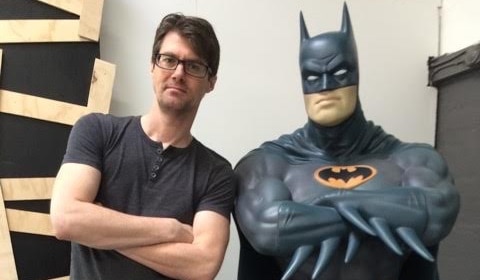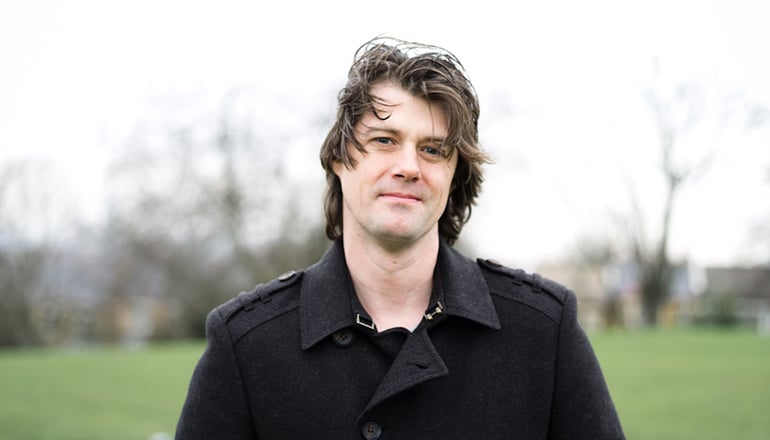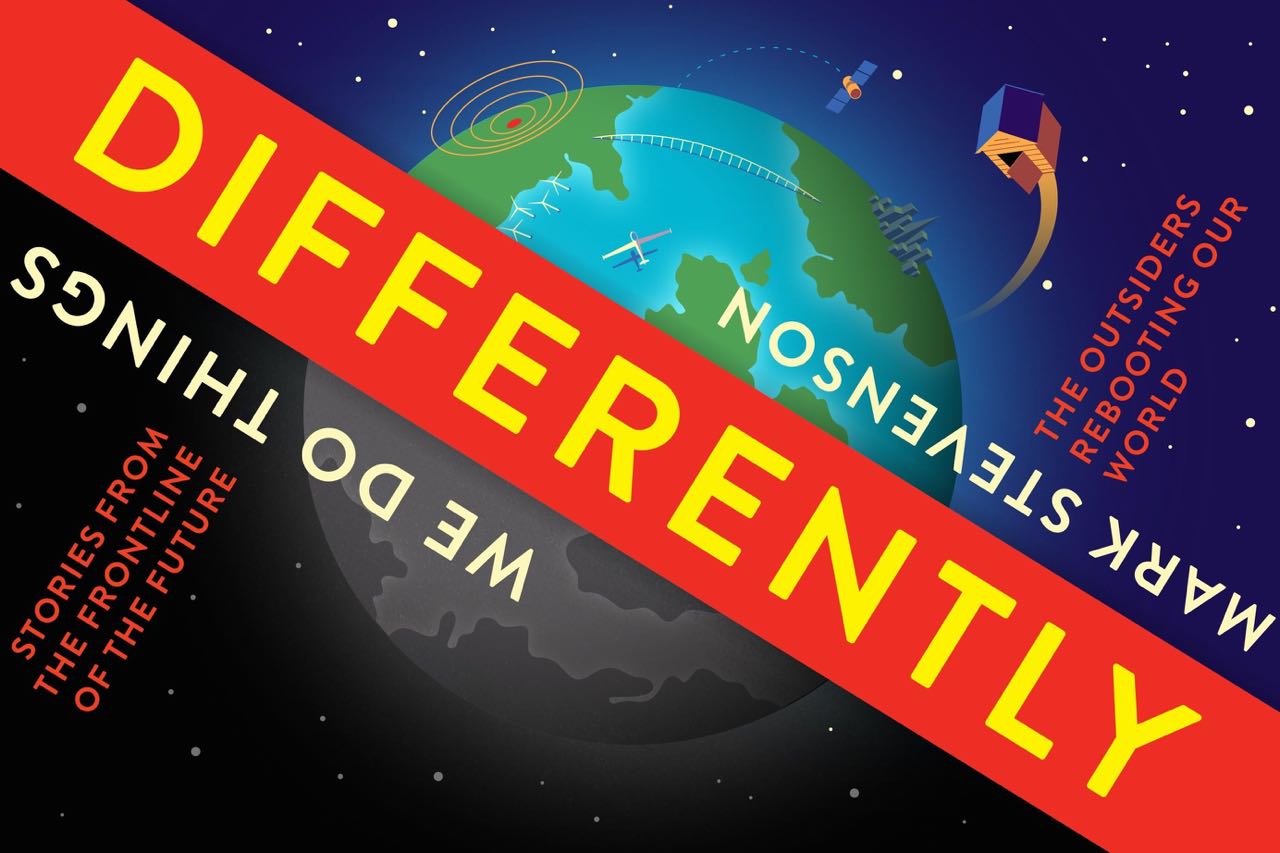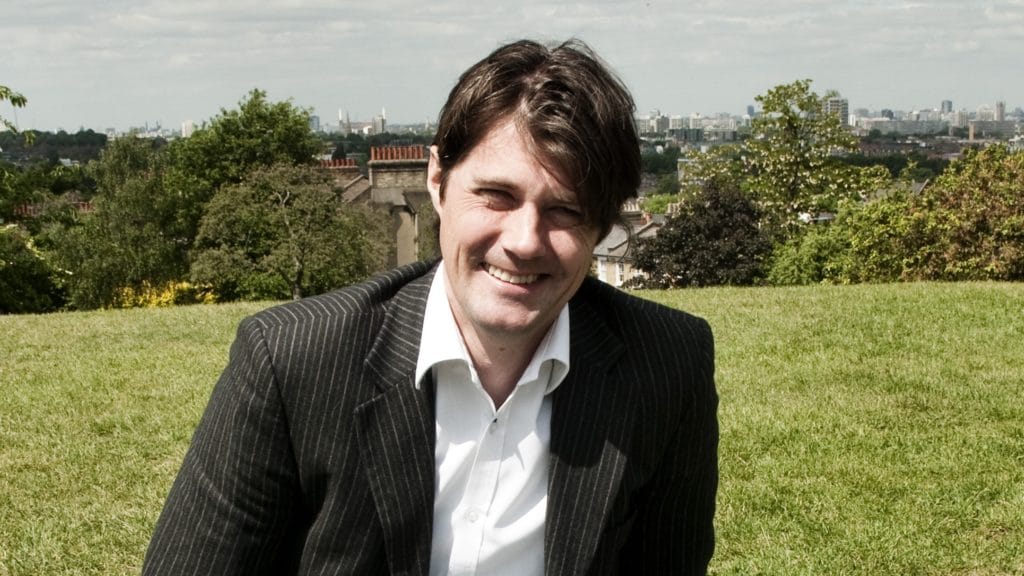There is no better time to reboot our world than right now, which means there is no better time to read the two bestselling books by ‘reluctant futurist’ Mark Stevenson. The pragmatic optimist tells stories of people doing things differently to meet humanity’s challenges in innovative and surprising ways.
Part of a subset of people who think differently, Stevenson is more interested in the individuals who come together to do differently; the ones who “roll up their sleeves” to challenge the status quo. And what’s more, they’re succeeding at it. In ‘We Do Things Differently: The Outsiders Rebooting Our World‘ (in Spanish: ‘Como reiniciar el mundo’), he travels across four continents visiting the ordinary folk behind amazing innovations in healthcare, energy, food, water and education.
At the Atlas, we love people who speak ‘human’. Anyone who tells stories that help everyone understand the super-cool stuff making the world better is alright in our book: “We have the tools and ingenuity we need to remake our world. Many futures are already here – now we have to decide which ones to distribute.”
We spoke to the infinitely-quotable author about useful storytelling, the reasons he wants to be filed next to Beyoncé and why Batman doesn’t care about under-floor heating.

Bold optimism and future POW! (He’s the one on the left)
Mark Stevenson:
“Who isn’t interested in the future? Charles Kettering, the American inventor, said “my interest is in the future because I am going to spend the rest of my life there.” We’re all futurists really, as human beings are the only creatures that can systematically imagine something that hasn’t happened yet.
My wife says that my career makes sense in retrospect. When asked for career advice, I say “Your career will not make sense in the windscreen but it will make sense in the rear view mirror.” And it will depend what you had on your dashboard. Will you be driven by fear or passion? The author Robert Bach said “Shop for security over happiness and you buy it, at that price.”
I wanted to be a musician. I spent 10 years in a band trying to write pithy songs about politics and philosophy that sounded like they were about boys and girls. I was into XTC and Squeeze. I became a writer by accident, via a year in stand-up comedy.

Not as easy as he makes it look
I was always fascinated by pop songs and good comedy. I love a sentence that is beautiful as well as useful. Stevie Wonder can distil an emotion that’s complex and difficult into three lines you can sing and dance along to – that’s extraordinary skill. I have always been interested in how great art, great writing, comedy and songs can communicate the truth in an engaging way without trivialising it.
Storytelling is a key skill. I respect the skill of people who can spin a great yarn, even if they tell untrue stories. Then there are people who tell true stories well – and that is what the world needs more of. Andy Partridge from XTC is good at nailing emotional truths in sing-a-long ditties. And Hans Rosling is the Andy Partridge of statistics.
Another good storyteller is Elon Musk. He tells a big story about the future and about what human endeavour can do. He’s not in business to get rich, he’s in business to change the human narrative.

Doing things differently in a park
The best jokes are often short. You know when a comedian nails something about your relationship that you haven’t been able to say to your wife for the last 10 years, and you’re both laughing and realise that it’s true? That’s the truth well told.
I ended up writing because I bumped into a literary agent whose wife had seen me do stand-up. He asked me what I’d write about and I told him there were two things that bothered me that I wanted to address. One, that ignorance is seen as cool, and two, that cynicism is seen as wisdom. The idea of dreaming big dreams, that you can make the world better, is outside of culture right now. It’s seen as naïve.
I want to help people become future literate. Get the facts straight about what’s on offer, and then work out what you’re going to do to steer the world to a better outcome.
There are important stories that need to be told, like what’s happening with climate change. That’s a classic example of how something really, really important has been communicated badly – to the extent that most people don’t understand what’s actually happening. And that, given it’s probably the most important story in the history of mankind, sucks.

Optimistic in any language
I want being a pragmatic optimist to be as cool as Beyoncé. Anyone pushing the boundaries and using their creative skills, with bold dreams, working their nuts off, pulling together science and technology and culture, is cool. Really cool.
Most people want a safe world. The basic human values of compassion and doing to each other as you would have done unto yourself are embedded in the vast majority of people.
Most people are basically good. Cynics say otherwise. But ask a cynic if they’re basically good and they’ll say “yes”.

Mark Stevenson: A “yes” man
Fear is hard, but regret is a fucker. And the trouble with regret is you can’t do a thing about it. In my work with corporations and government, it’s often about getting the person across the table to see that.
I often think about proxies for the future. I was with a paediatric cardiovascular surgeon who said Fitbits and wearables will do more for the health of America than anything he will ever do. Why? Because people don’t want to protect their hearts by exercising when they’re young. They want to have pizza or beers with friends and watch TV. But put a Fitbit on and you might say: “Ooh I’ve only done 7,000 steps today. My mate Kevin’s done 12,000. I’m going to do more!” It’s made future health a game you can play today.
My philosophy is that if you’re not trying to make the world a better place then why are you here? (With the caveat that I don’t apply that analysis to anyone who is hungry or running away from danger or oppression.) But once you’re safe, if you are not trying to make the world a better place then, really, what is the point of you?
Batman doesn’t come on screen and go: “’I will have underfloor heating”. That’s not his motivation. Batman has a ‘bigger than me’ project – as do the people we aspire to be, or the people we want to sleep with. The people you want to hang out with at parties are people who have something more than themselves. People with a project that’s only the same size as they are can only talk about their kitchen.
There isn’t a single astronaut that came back from space that didn’t have an environmental epiphany… realising: “Hang on, there’s a bigger picture.”
People on the right side of history have better parties. Ed Gillespie says that we need to make people realise that sustainability and doing the right thing are a damn sight more fun than going into a dull job, making a bit more money under somebody else’s value system that you don’t agree with, but you justify just because you got an extra 10% – or an extra 100% – in your pay packet. But at what cost to your soul? Getting drunk with Ed Gillespie is, I will vouch, one of the most extraordinarily brilliant experiences on the planet. We’re hatching a huge project together.
History has a moral direction. Robert Wright does a great TED talk on this – in which he says “Ask me why the Americans won’t bomb the Japanese again, and it’s because they built my car”. The more intertwined we are, the harder it is to hurt somebody else without hurting yourself. We’re a co-inspirational network, us humans, our fates are correlated. Want to go up, or down?”

Stevenson’s stories from the frontline of the future
One half of the Futurenauts, Mark Stevenson advises The Virgin Earth Challenge, Trillion Fund and Mass Challenge is the founder of We Do Things Differently. Check out Mark’s AtlasChart Top 5 for the optimist’s tour of the future.
Watch ► Mark’s appeared at Atlas of the Future’s Barcelona conference: ‘Fixing the future: adventures in a better tomorrow’. Check out the video here.

